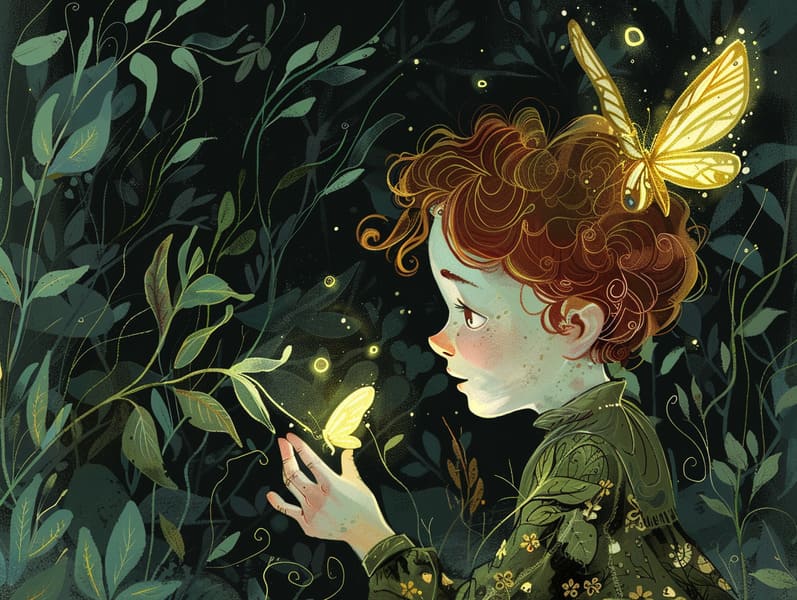The Wonder of Evening Stories: Forming Valued Experiences with Your Family
The Wonder of Evening Stories: Forming Valued Experiences with Your Family
Blog Article

Bedtime is a important time for adults and their kids. It’s a occasion to settle down, get cozy, and revel in the wonder of nightly stories.
For generations, nightly tales for children have been a valued legacy, offering more than just a way to fall asleep. They provide an occasion for affection, education, and igniting vision.
Significance of Bedtime Stories
Bedtime stories for kids serve more than a way to complete the day. They play a vital role in a child’s maturation and in nurturing the caregiver-child rapport. Here’s why they are valuable:
1. Quality Time: Reading together at bedtime strengthens a special time of affection between families. It’s a moment of affection that helps children feel appreciated and reassured.
2. Vocabulary Building: Enjoying narratives helps children develop their language skills. They gain new words, understand form, and sharpen their hearing and interpretative skills abilities.
3. Creative Thinking: Stories for kids transport them to fantastic worlds, encouraging dreams. They dream of characters, settings, and adventures, which sparks their fantasy.
4. Emotional Development: Bedtime narratives often include characters facing obstacles and emotions. These scripts help kids recognize and process their own moods, building feeling recognition.
5. Thinking Skills: Engaging with a story helps children develop mindfulness, recall, and critical thinking skills. They develop to follow stories, remember components, and predict outcomes.
Establishing Bedtime Story Rituals
Starting a bedtime custom that incorporates narrating bedtime stories is simple and rewarding. Here’s how to develop a cherished part of your nightly practice:
1. Pick a Cozy Area: Identify a relaxing place where you and your child can cuddle without disturbances. A peaceful bed or a snug reading nook works wonderfully.
2. Choose a Set Time: Establish a regular time each night for tales. Dependability helps children be ready and makes the practice easier to follow.
3. Select Age-Appropriate Stories: Pick tales that are appropriate for your child’s understanding. Young kids might be engaged by books with pictures with clear stories, while bigger children may enjoy books with chapters with more detailed stories.
4. Interact with the Story: Try to the tale be engaging by employing different voices and accents, adding sound effects, and inviting your child to be active. Ask questions about the story to maintain their interest.
5. Make a Calm Setting: Adjust the lights, use gentle voices, and create a soothing environment to help your child calm down.
Where to Locate Bedtime Stories
There are varied sources where you can find excellent bedtime stories for children. Here are some choices to try:
1. Children’s Literature: Check out your area library or bookstore to find a broad selection of bedtime stories for kids. Exploring the options together can be a entertaining activity that also helps children to get stories that they are drawn to.
2. Internet Resources: There are many places online that offer free bedtime stories. Sites like free story websites provide a variety of short stories for kids that you can access. These platforms are great for finding new and different stories without fees.
3. Apps and Audiobooks: For nights when you’re too fatigued to read, look into audiobooks or storytelling apps. These can provide a gentle reading to read your child a story, ensuring they still get their bedtime story fix. Apps often offer interactive parts that can hold their focus further.
4. Tailored Stories: Create your own stories matching your child’s experiences. Personalized stories can be especially engaging and meaningful. You can get your child in the writing process, making them a part of the adventure.
Why Short Stories Are Effective
Brief stories for children are very effective for bedtime. They provide all the advantages of longer stories but are more to the point, making them perfect for settling down before sleep. Here’s why short stories are a excellent choice:
1. Clear and Simple: Brief tales are straightforward and easy for children to follow, even after a long day. They can swiftly grasp the tale and enjoy the story without becoming distracted.
2. Immediate Attention: These stories rapidly engage children, seizing their engagement and wonder. This makes them suitable for keeping bedtime traditions easy yet enjoyable.
3. Diverse Options: Quick stories give for variety in your bedtime stories. You can opt for a different story each night, keeping the ritual new and exciting for your child.
4. Time-Saving: For busy parents, short stories are a time-saving way to confirm children still get their nightly dose of storytelling. They fit well into a tight schedule while still offering the full good points of a bedtime story.
Why "Read Me a Story" is Powerful
The simple phrase, “Tell me a bedtime story,” can give a world of magic for children. Reacting to this request not only addresses a child’s want for attention and engagement but also develops lasting occasions. Here’s why it’s special:
1. Relationship: Sharing stories to your child encourages a deep emotional attachment. It’s a time for intimacy, sharing, and bonding.
2. Practice: Starting a bedtime story routine creates a prized tradition that children expect every night. It’s a ritual that can be shared through generations.
3. Growing Together: As you narrate, you’ll observe your child’s advancement and growth. Their interest, reactions, and understanding of the stories advance, offering insights into their developing minds.
4. A Safe Haven: Bedtime stories provide a safe space for children to examine emotions, face fears, and find comfort in the familiar presence of free bedtime stories a parent.
The Last Word
Sleep stories for kids are a essential tool for growing a child’s progress and building unforgettable events of closeness.